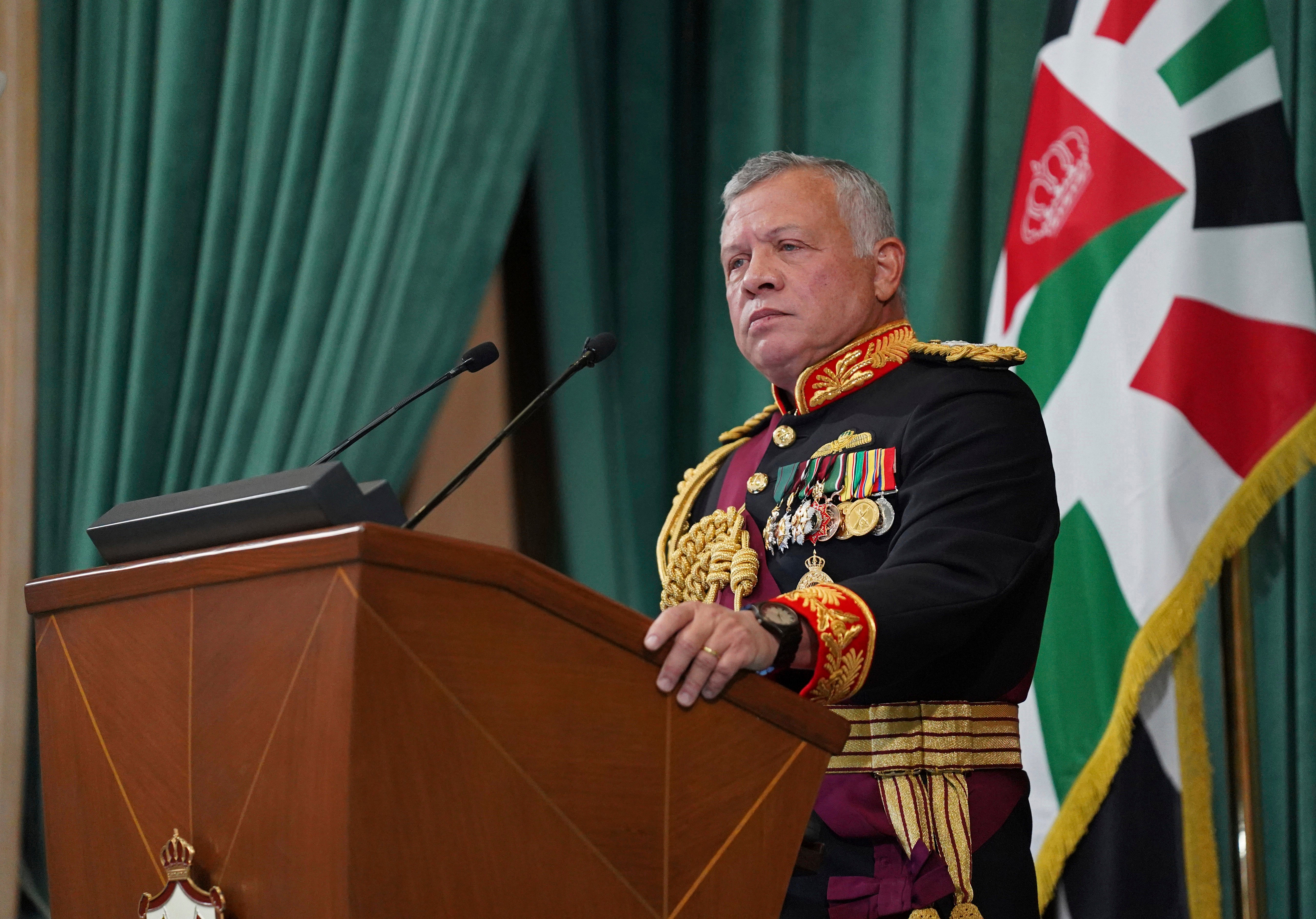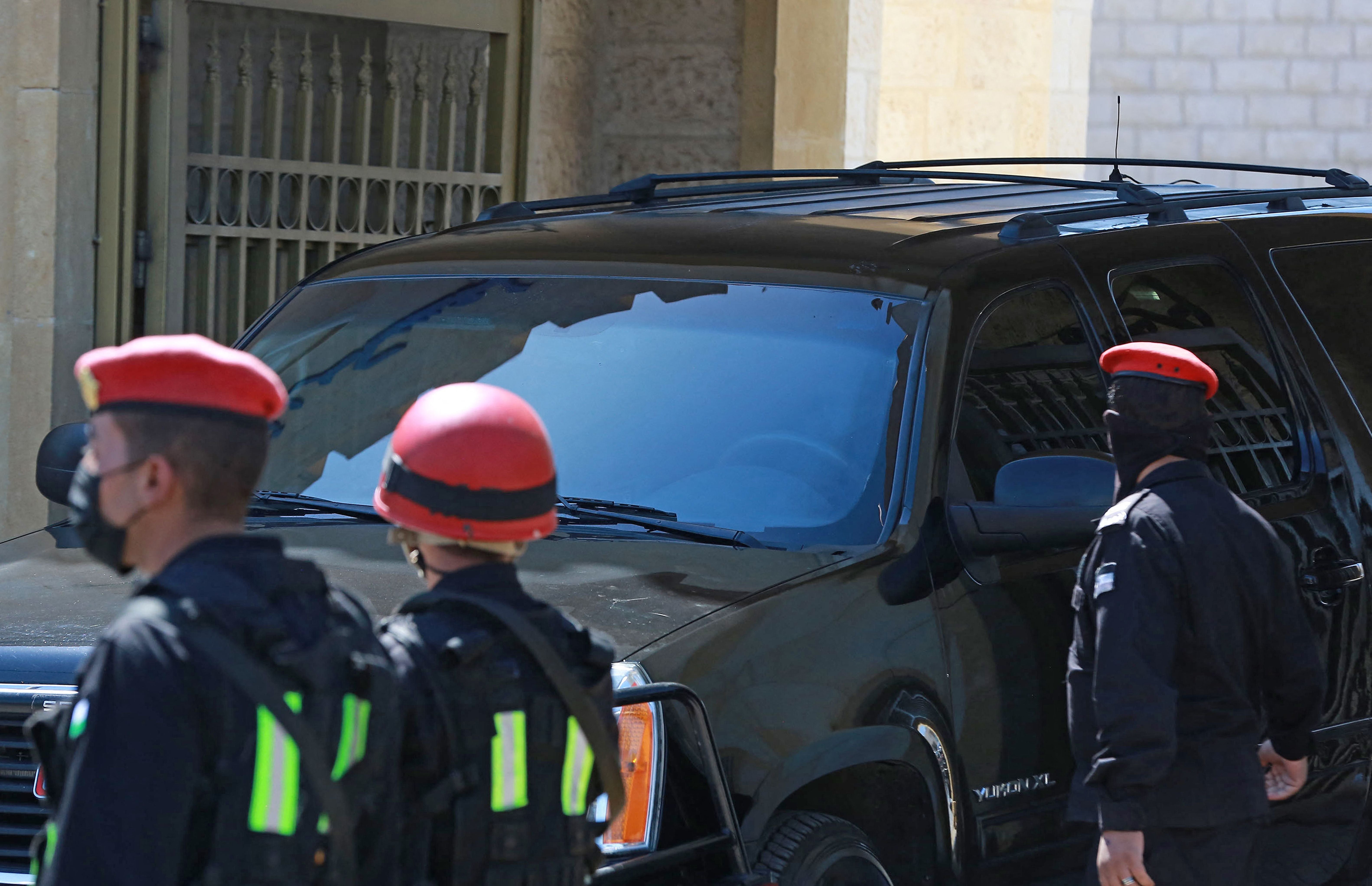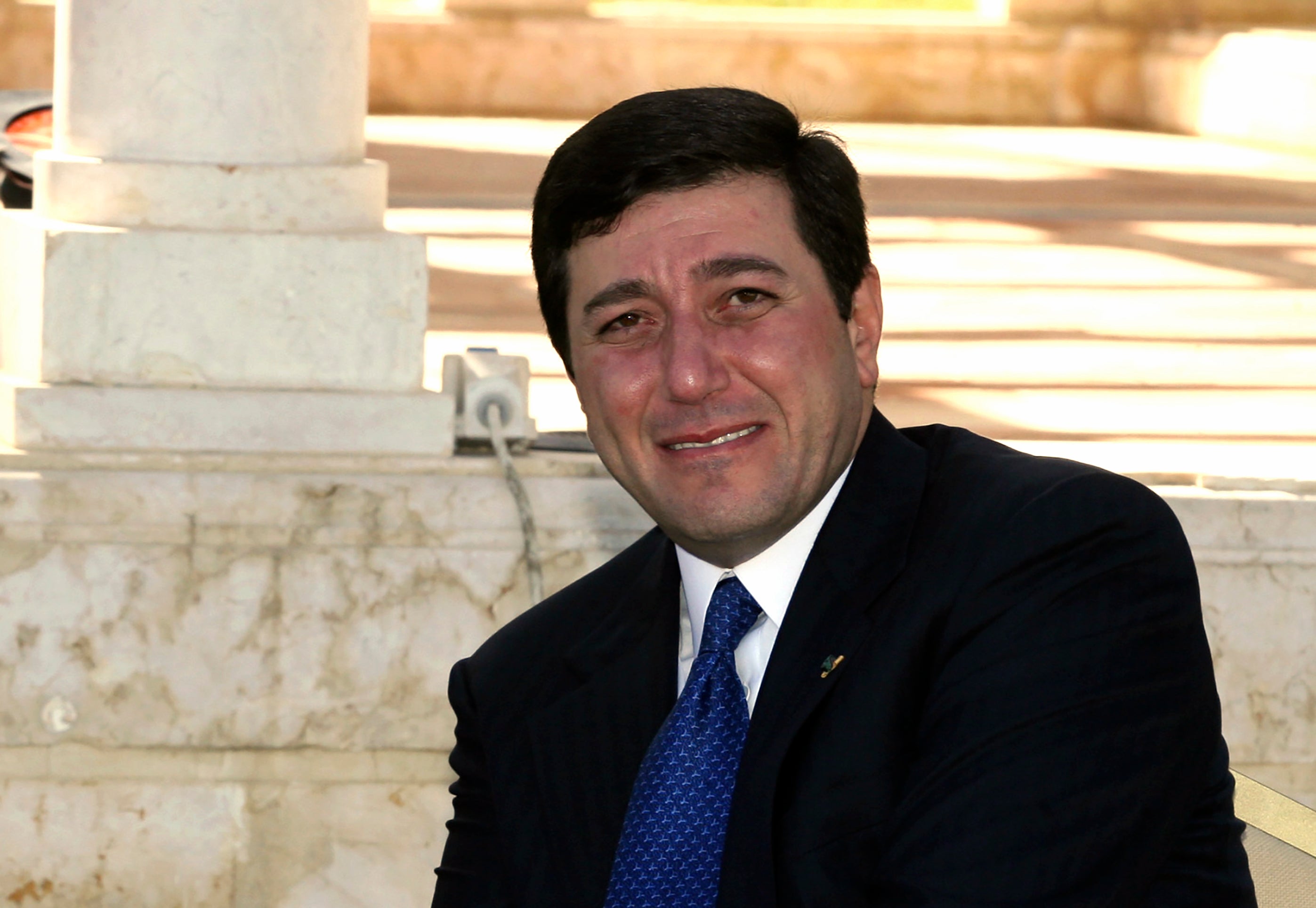A real royal drama: Jordan’s battle for the crown
The tale of the attempted coup has been described as “Jordan’s trial of the Century”, one which could have widespread repercussions for the Middle East and further abroad.

A web of royal rivalry, palace plots and secrets and lies involving powerful international rulers, politicians and intelligence services lie behind the trial that has started in Jordan over charges of sedition against the ruler of the Hashemite Kingdom.
The accusations and recriminations that have swirled around the alleged attempted coup against King Abdullah II have drawn in a cast which includes Prince Mohammed bin Salman of Saudi Arabia, Donald Trump’s son-in-law Jared Kushner and the recently departed Israeli prime minister, Benjamin Netanyahu.
The case against the two defendants in court, Sharif Hassan bin Zaid, a distant cousin of the King, and Bassem Awadallah, a former highly influential senior official, began last week.
The tale of the attempted coup has been described as “Jordan’s trial of the century” and “a real life Game of Thrones”, one which could have widespread repercussions for the Middle East and further abroad.
The defendants, who have pleaded not guilty, face up to 20 years imprisonment if convicted. However, the senior member of the royal family who allegedly wanted to take over the throne, the 41-year-old former Crown Prince Hamzah bin Hussein, a half-brother to Abdullah, has not been in court.
Prince Hamzah is under house arrest, but has not been charged. The Palace has announced that the matter was being dealt with “within the framework of the Hashemite family”. The King subsequently declared that Hamzah was “with his family in his palace, under my care”.
The Prince is not in court despite the prosecution indictment stating that he “was determined to achieve his personal ambition” of becoming the ruler and there was a “solid connection” between the two defendants and him.
The two accused men were driven into the State Security Court in Amman in SUVs through a back entrance, the only sight of them came in a leaked video. It showed them walking with hands manacled behind their back, in blue prison fatigues of those held by the intelligence services.

The defence legal team has stated that Prince Hamzah will be asked to appear as a witness. They also intend to call analysts on surveillance to examine wiretap evidence that forms a key piece of prosecution evidence.
Mohammed Afif, a former State Security Court judge who is now a lawyer for Awadallah, said “both the defendants insist that Prince Hamzah testifies in the case. The court will have the final decision, but it must justify itself if it refuses to summon him. The defendants will present their defence in writing and then we will ask the court to hear from up to 10 witnesses”.
“We want Prince Hamzah to be one of these witnesses. He is a big part of this case. We also want to say that since part of the prosecution account is based on wiretaps, the defence plans to call on Jordanian and foreign experts to verify the authenticity of the recordings.”
The projected appearances of Prince Hamzah and foreign analysts, with the possibility that they may be former intelligence officers, are potentially highly problematic for a number of foreign states as well as the Jordanian government.
It is difficult to see how the court can avoid addressing the issues.
According to the charge sheet: “Prince Hamzah was aiming to become the ruler of Jordan ... started attacking His Majesty the King and was encouraged by Sharif Hassan who exerted all his efforts on Prince Hamzah becoming ruler of Jordan.”
Awadallah was brought in to get international support for the plot. “They knew that Awadallah was experienced and had strong influence abroad, which could help in securing Prince Hamzah becoming the ruler,” says the document.
The attempted coup has caused deep concern among traditional international allies such as the US and Britain about a country that has been viewed as an oasis of stability in a turbulent neighbourhood.
The stability of the country has long been tied to the stability of the royal family. Now a taboo has been broken; someone has opened the door of the Hashemite family to the public debate, and if it is not managed now carefully, we will witness people questioning the model of governance in Jordan.
It has also raised contentious questions inside Jordan, a country battered by the effects of the Covid pandemic on top of deep financial malaise, about the state of the country and about the royal family – hitherto considered sacrosanct.
The secrecy of the legal proceedings, meanwhile, has fuelled rumours about a sinister cabal at work in the country and the influence of a malign “foreign hand”.
Amer al-Sabaileh, an academic and political analyst based in Amman, commented: “The stability of the country has long been tied to the stability of the royal family. Now a taboo has been broken; someone has opened the door of the Hashemite family to the public debate, and if it is not managed now carefully, we will witness people questioning the model of governance in Jordan.”
A senior serving official of the Kingdom agreed that the plot and its aftermath are having a destabilising effect in the country and what emerges will have significant consequences abroad.
“There have been divisions, bad ones, violent ones, between members of royal families in the region. But this is Jordan and there has not been a senior member of the royal family imprisoned here for more than 60 years,” said the official. “The economic situation is very bad, unemployment is high and we have been badly hit by Covid. One can’t deny this has caused discontent.
“There is also a lot of suspicion about foreign countries. There have been attempts to prevent bad publicity and avoid misunderstanding with neighbours. But this has raised issues which are not going away.”
The extent of foreign involvement in the plot is a matter of controversy and sensitivity.
One claim is that the Saudi government wanted proceedings dropped against Awadallah, and senior figures from Riyadh, including foreign minister Faisal bin Farhan, the head of the country’s intelligence services as well as members of the entourage of Crown Prince Mohammed bin Salman, visited Amman to persuade the Jordanians to let Awadallah return with them.
The second defendant, Bin Zaid, also has Saudi links; his father, Sharif Hasan bin Zaid al-Nasser, lives in Saudi Arabia. The Saudi government denies trying to offer refuge to Awadallah and says the delegations were there to reassure Abdullah of support.
Western and Jordanian officials say that the Saudis may have succeeded had it not been for the change in the US presidency with Donald Trump gone and Joe Biden taking over.
The Saudi connection is an integral part of the allegations surrounding the coup. Prince Hamzah, according to the prosecution, asked Awadallah whether he would get Saudi support if he went ahead with the plot. The deputy prime minister, Ayman Safadi, held that the prince has been liaising with some “foreign entities”. The Saudi government denies that it was involved in the attempted coup.
Awadallah, the former head of the royal court and former finance minister, holds dual Saudi-Jordanian nationality and is an economic advisor to Mohammed bin Salman (MBS). His network of influential international connections also include Crown Prince Mohammed bin Zayed, the de facto ruler of the United Arab Emirates (UAE). Awadallah was apparently involved in the UAE-backed purchase of Palestinian land around Jerusalem.

The Palestine and Israel connection takes the coup into one of the most highly publicised and divisive episodes in the recent politics of the Middle East – Jared Kushner’s supposed “deal of the century”. Donald Trump’s son-in-law had cultivated a friendship with MBS and expected Saudi support for his proposed agreement between Israel and Palestinians. He had also gained the backing of the UAE.
Abdullah, with a large Palestinian population in Jordan, had raised grave doubts about the viability of the American plan. It would, the Jordanians held, scupper any chance of an independent Palestinian state as agreed in its own peace agreement with Israel in 1994.
Jordan has also opposed the “normalisation” of relations between a number of Arab states and Israel brokered by the Trump administration. This had led to worsening of relations with the UAE, one of the first to go down that path.
The Hashemites have the custodianship of the Islamic and Christian holy sites of Jerusalem and Abdullah had stated repeatedly that Jordan would not accept changes to the legal and historic status of Jerusalem the Israelis are trying to enforce.
The stance of King Abdullah led to him being sidelined by Mr Kushner, a major problem for Jordan as long as Trump was in power.
The indictment against the alleged coup plotters claimed that Awadallah pushed Prince Hamzah to “criticise and weaken the strong position of the King towards the Palestinian cause, the issue of Jerusalem and the Hashemite custodianship of Jerusalem’s Islamic and Christian holy sites”. Prince Hamzah, the prosecution claims, has declared “I don’t care about Jerusalem”.
Trump has gone and Kushner’s “deal of the century” is dead in the water. The changes in Washington, say diplomats, has had a huge impact on how the affair of the coup played out in Jordan.
During the Saudi attempts to extract Awadallah, diplomatic and security sources claim Nicholas Burns, the head of the CIA, asked the White House to intervene. The CIA denies this. President Biden called Abdullah during the visit of the Intelligence chief from Riyadh to offer his support. The Jordanian King is due to visit Washington next month.
Other western states have also rallied around. Britain, a long standing ally of Jordan, carried out a major military exercise in the country last week with troops from the 16 Air Assault Brigade carrying out a parachute drop and urban fighting drill with Jordanian special forces; a symbolic as well as strategic move.
Talks were held between senior officers from both countries. The Jordanian armed forces had issued a warning to Prince Hamzah not to undermine the “security and stability” of the Kingdom, with a personal visit by General Yousef Huneiti, the chief of staff. The prince, while under house arrest, had issued a video recording saying he had refused to comply with the military’s demand that he stops communicating with the outside world.
Jordan’s former deputy foreign minister, Jawad Anani, maintains that Israel was involved in the conspiracy. Senior officials claimed that Benjamin Netanyahu saw Abdullah as an obstacle to the deals he was seeking to make with Arab states. Israel denies these claims.
Roy Shaposhnik, an Israeli businessman and associate of Hamzah, had claimed that he had arranged a private jet to get the prince’s wife and family out of the country. Jordanian intelligence, according to the country’s media, had revealed that Shaposhnik is a former member of Mossad; this is denied by the Israeli businessman.
Jordanian officials have subsequently toned down talk of a “foreign hand” recently. They are especially careful about apportioning any blame to Saudi Arabia. A huge number of Jordanians work in there, sending back remittance, and there would be a massive impact on the economy if that was to stop.
There are, in reality, plenty of personal and societal reasons for Prince Hamza to rebel. The son of King Hussein and his fourth wife, the American-born Queen Noor, he was the designated Crown Prince. But in 1999, King Hussein changed the succession to Abdullah, who, in turn, five years later stripped Hamza of the title and gave it to his oldest son.
Prince Hamza has cultivated those who feel alienated by Jordanian hierarchy and the newly rich commercial elite. The discontent is among both the rural and urban population, members of tribes as well as young activists in the cities. The charges the alleged coup-plotters face include “seeking to spread dissatisfaction” among these groups.
The economic tribulations – unemployment just under 30 per cent, 50 per cent among youth – will not be affected by what happens at the ongoing trial, but the grievances among people may emerge in evidence at the proceedings.
King Abdullah has announced the forming of a committee to “open up the political life of the Kingdom” with the aim of giving greater power to parliament and consultation with civic society.
Under Article 195 of the Jordanian penal code lese-majeste – insulting the King, Queen and Crown Price – is a criminal offence and criticism of the royal family in public is muted.
But people are prepared to speak up more now. “I don’t think we will ever fully find out the full truth about the coup and we do not know what is going on this court case”, said Omar Mohammed Khatib, a 27 year old electrical engineer in Amman.
“Maybe there are foreign countries involved, but those the government say were plotting were making use of peoples’ unhappiness. Unless there are real reforms we are going to have more big problems in the future, what happened would not be the end of the matter.”
Join our commenting forum
Join thought-provoking conversations, follow other Independent readers and see their replies
Comments
Bookmark popover
Removed from bookmarks